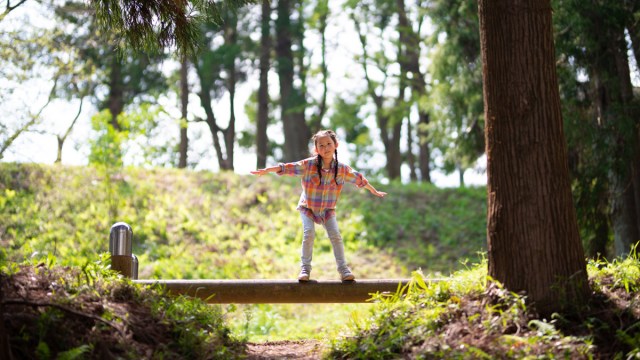Is a lack of independent play really what’s causing kids’ mental health to decline? This study says yes—but there’s more to it
There has never been a time when kids were more anxious than they are today. Depression, anxiety, and other mental health issues have hit an all-time high in school-aged children and teens in the U.S., prompting adolescent mental health to be declared a national emergency in 2021. But what no one seems to be able to agree on is why so many kids are struggling right now, though it’s not for lack of trying. Now, a new study claims to have the—or at least, one—answer.
According to researchers from Florida Atlantic University, a rise in mental health issues stems from today’s kids having fewer opportunities than kids in the past to play independently—that is, to roam and engage in activities without the direct oversight of their parents. The study says that adults have good reasons for wanting to protect and guide their kids but that many have taken it too far, resulting in kids who just don’t develop the independence they need to be mentally healthy. This, in turn, has led to an increase in anxiety, depression, and suicide among kids.
The researchers also found that kids may have less time for independent play because the amount of time they spend on schoolwork has increased. From 1950 to 2010, the average school year got five weeks longer. Homework is now standard for all grade levels, even kindergarten. And kids spend less time at recess when they’re at school, depriving them of even short breaks from supervision throughout the day.
RELATED: What Kids Should Be Able to Do Themselves by Every Age
“Parents today are regularly subject to messages about the dangers that might befall unsupervised children and the value of high achievement in school. But they hear little of the countervailing messages that if children are to grow up well-adjusted, they need ever-increasing opportunities for independent activity, including self-directed play and meaningful contributions to family and community life, which are signs that they are trusted, responsible, and capable,” study co-author David F. Bjorklund wrote. “They need to feel they can deal effectively with the real world, not just the world of school.”
While this study makes some valid points, it’s also important to note that kids, mental health, and the world we live in are all incredibly complex. There simply isn’t a single answer to why so many kids struggle with their mental health today—it’s a confluence of factors related to socioeconomics, technology, and the simple fact that we have better mental healthcare and (marginally) less stigma, which means more people at all age levels are being diagnosed with mental illnesses than they used to. Kids have a tough world to grow up in right now, and while many people see the rise in mental illness as a bad thing, what it actually means is more kids are being diagnosed and getting help, and that’s what’s most important.











